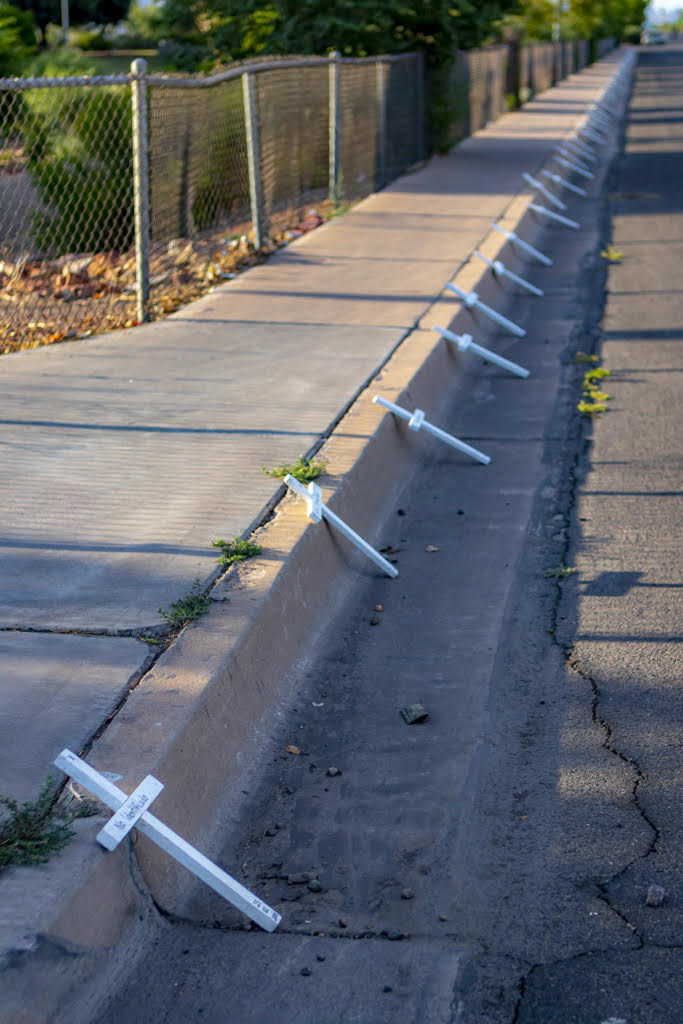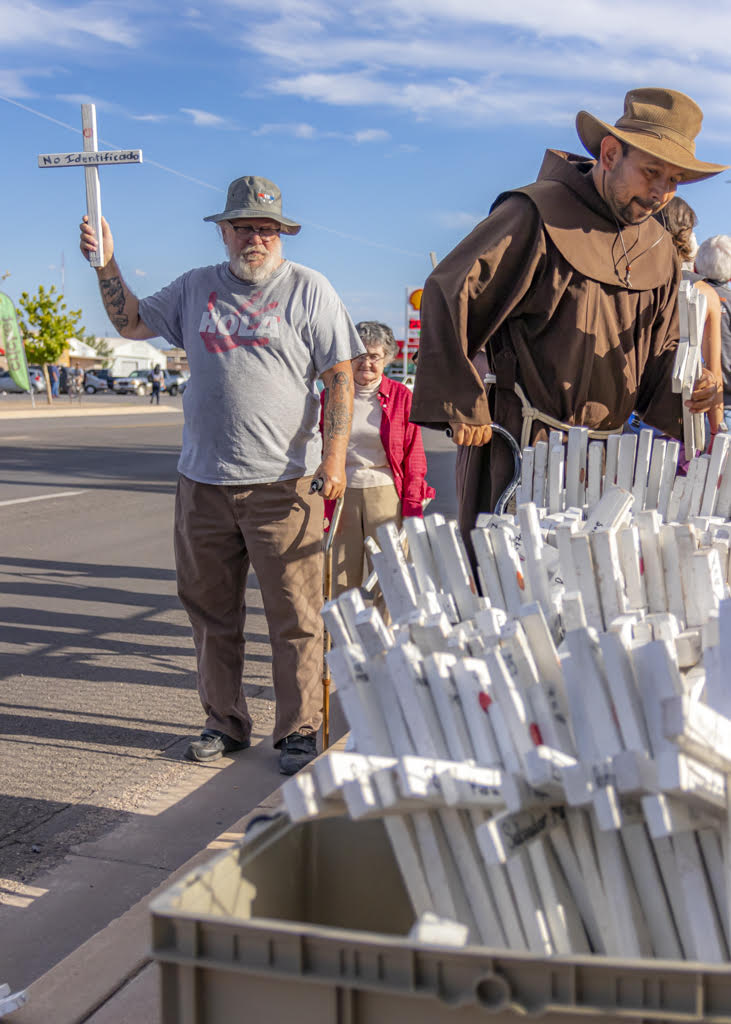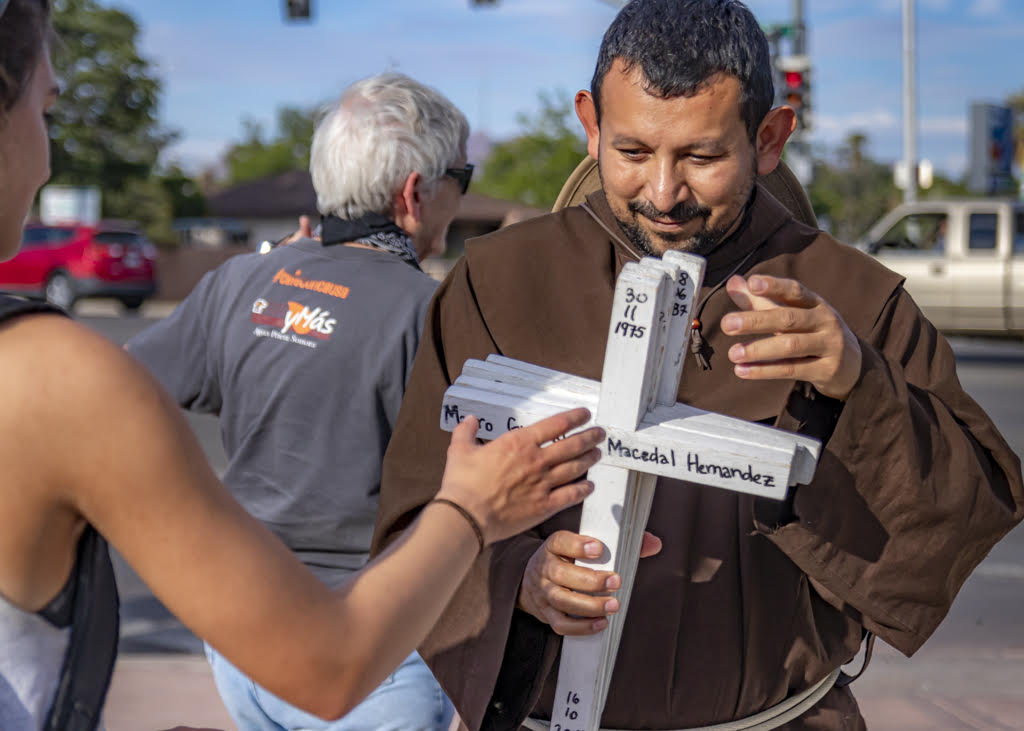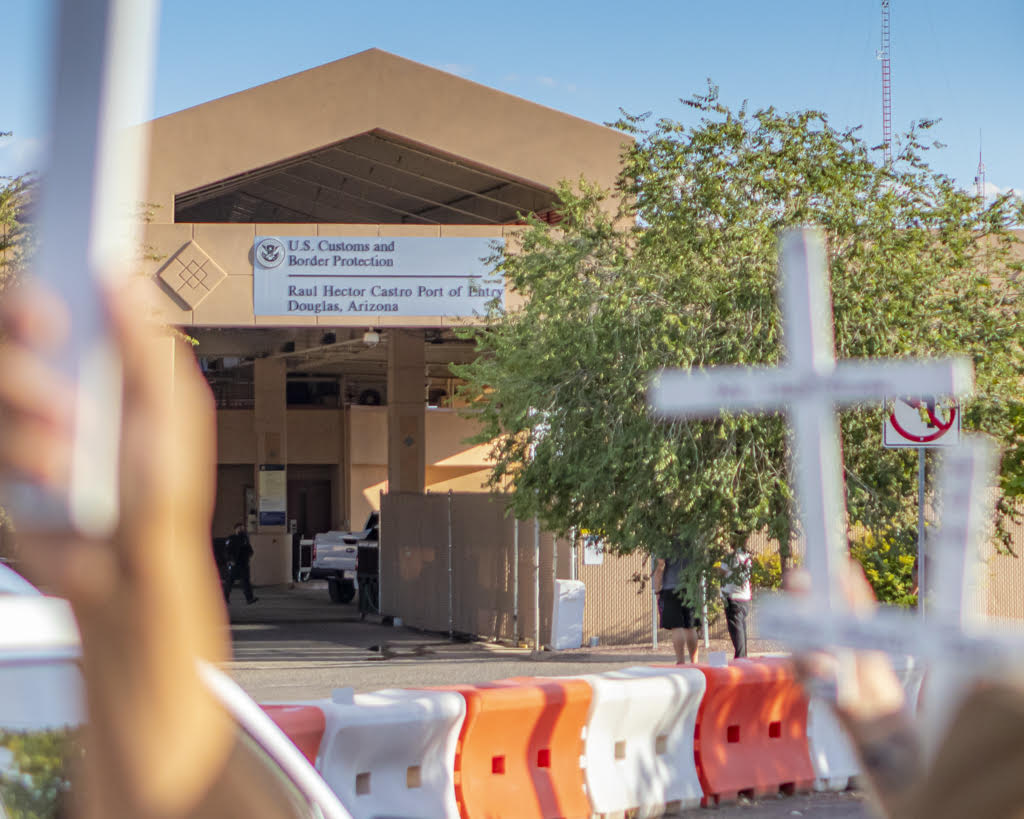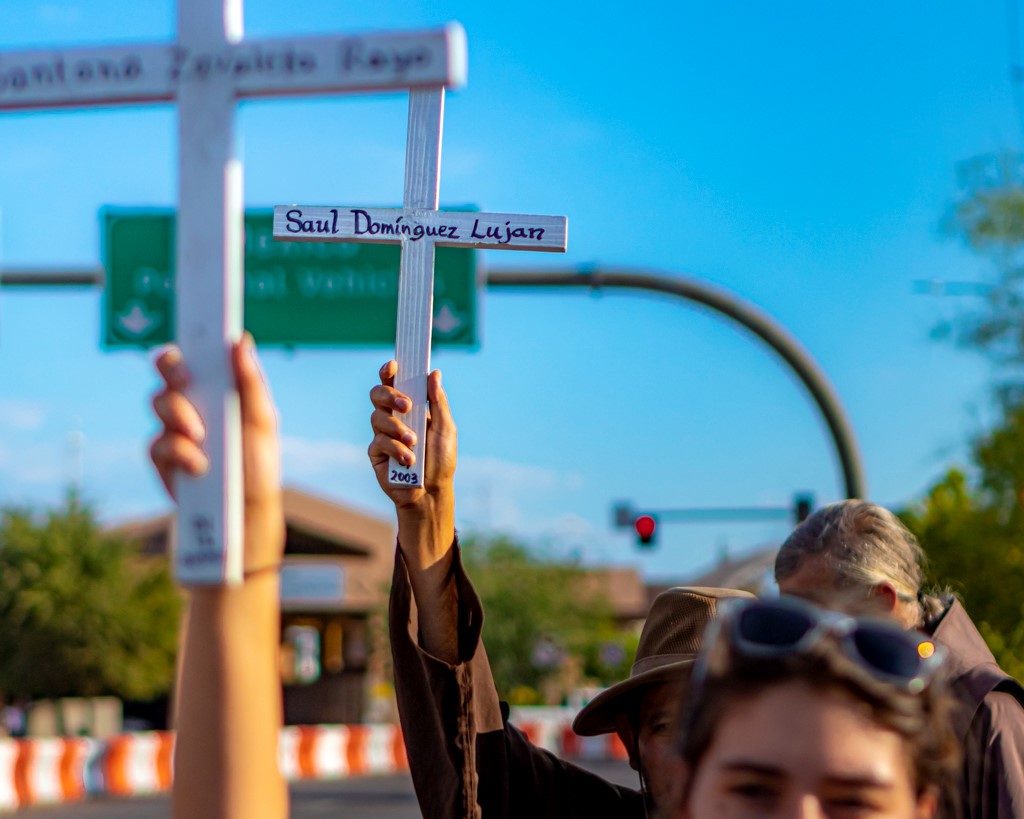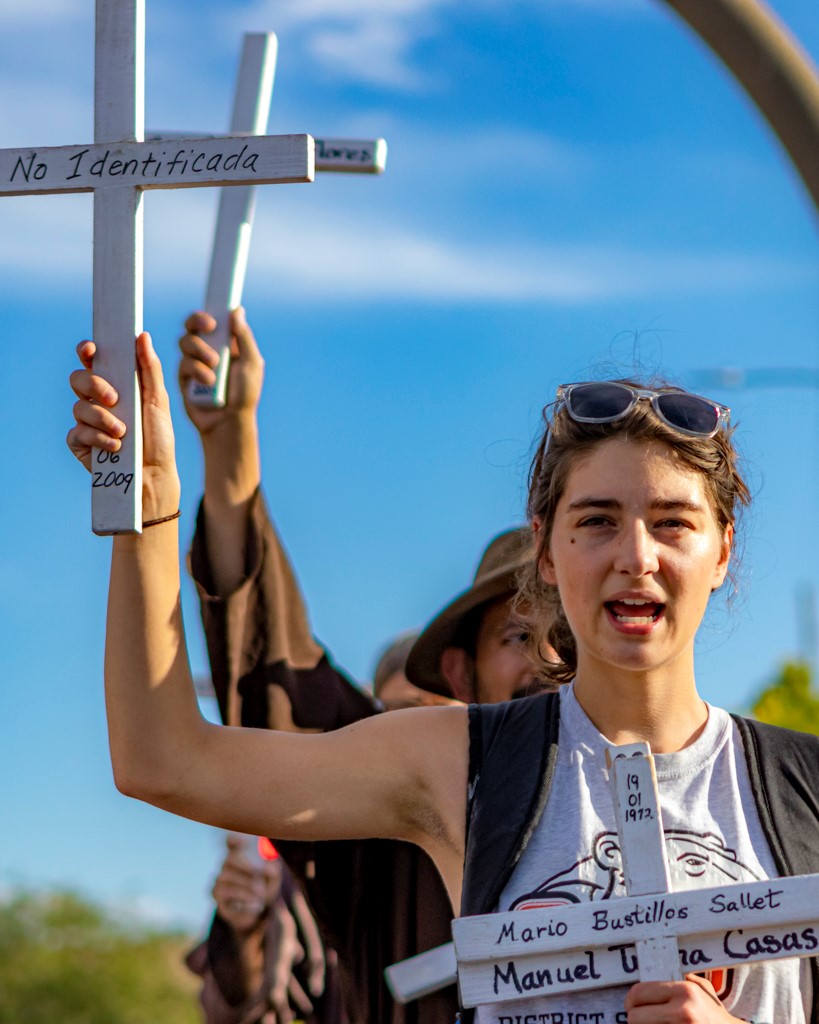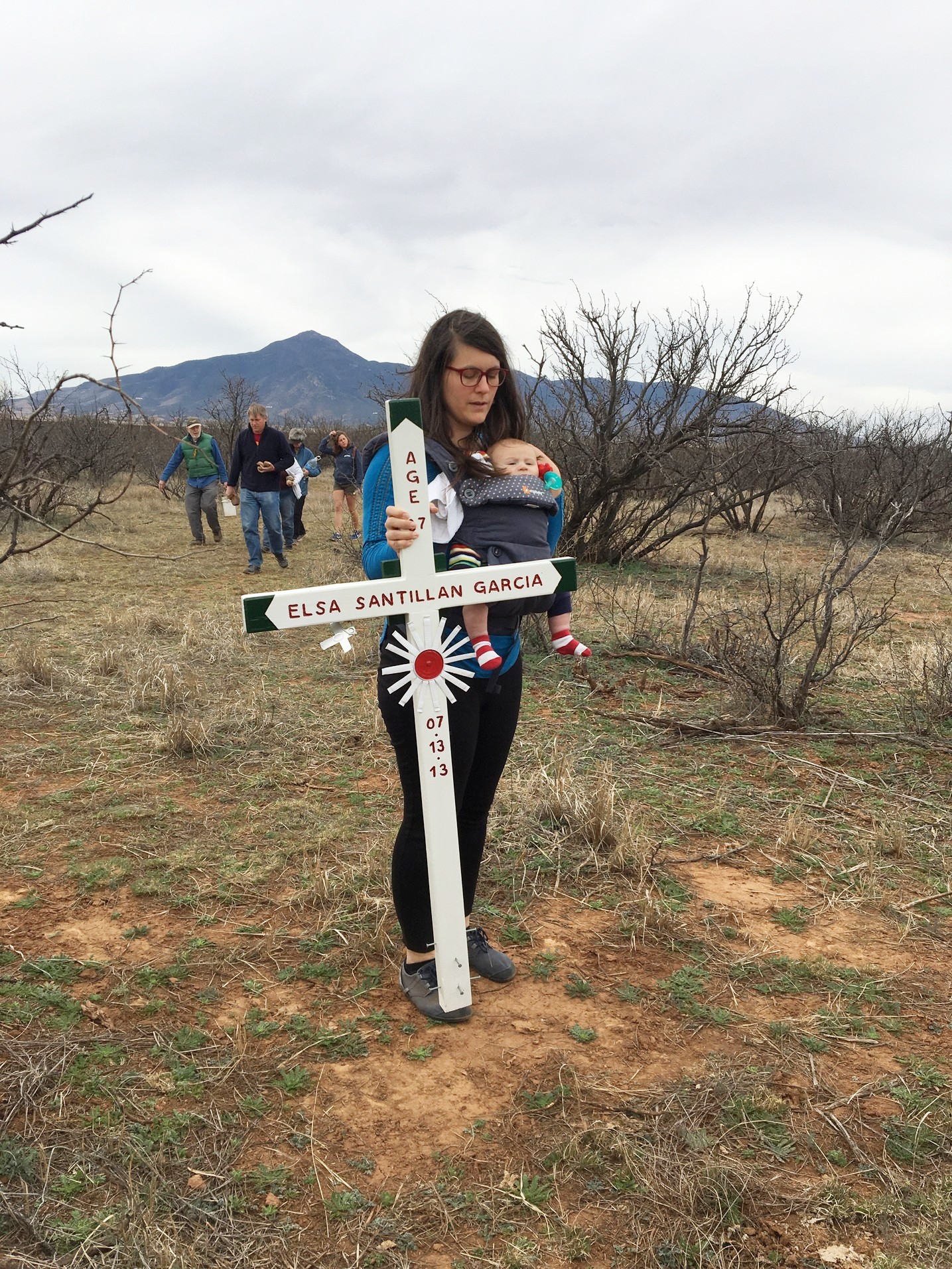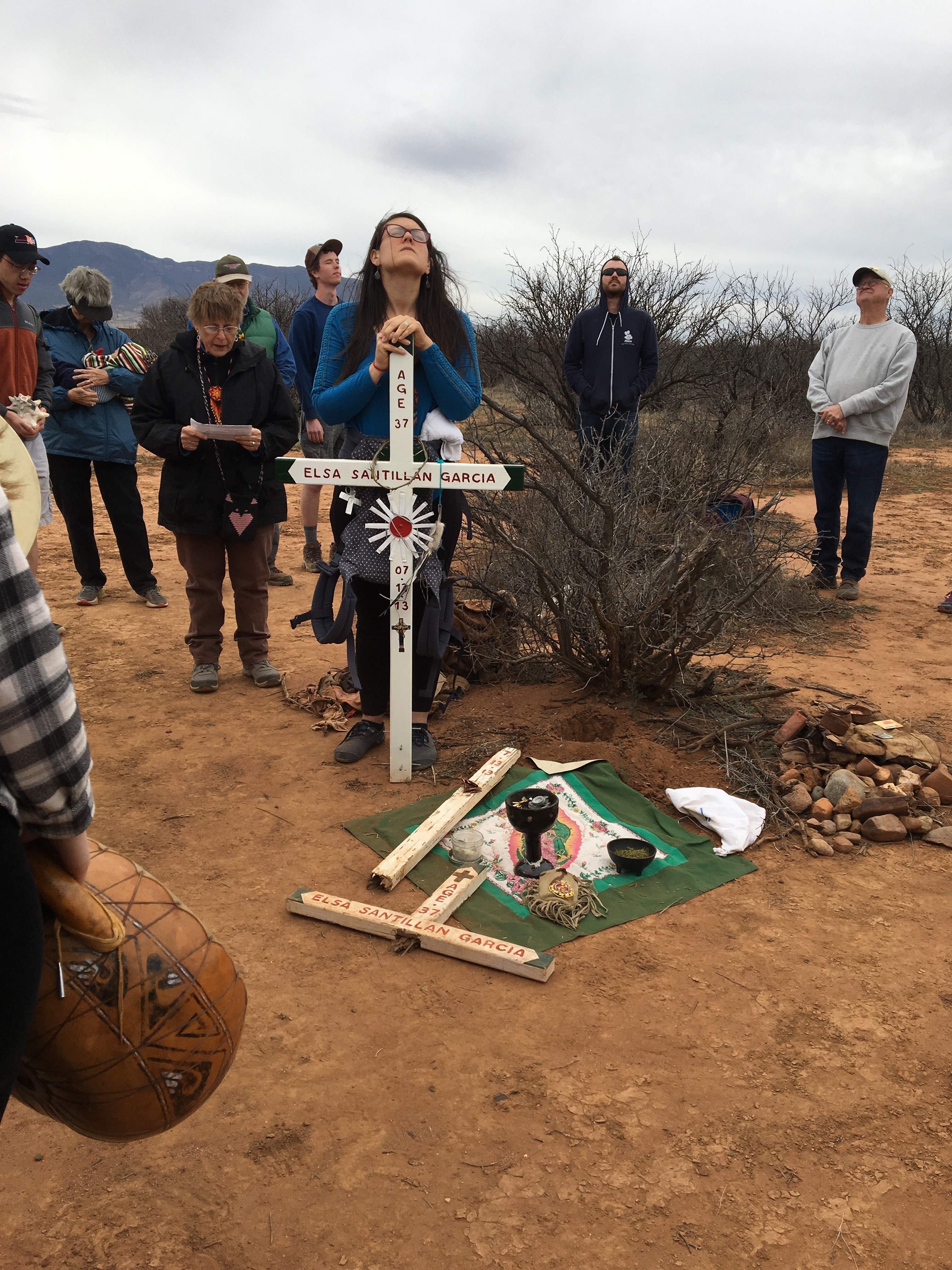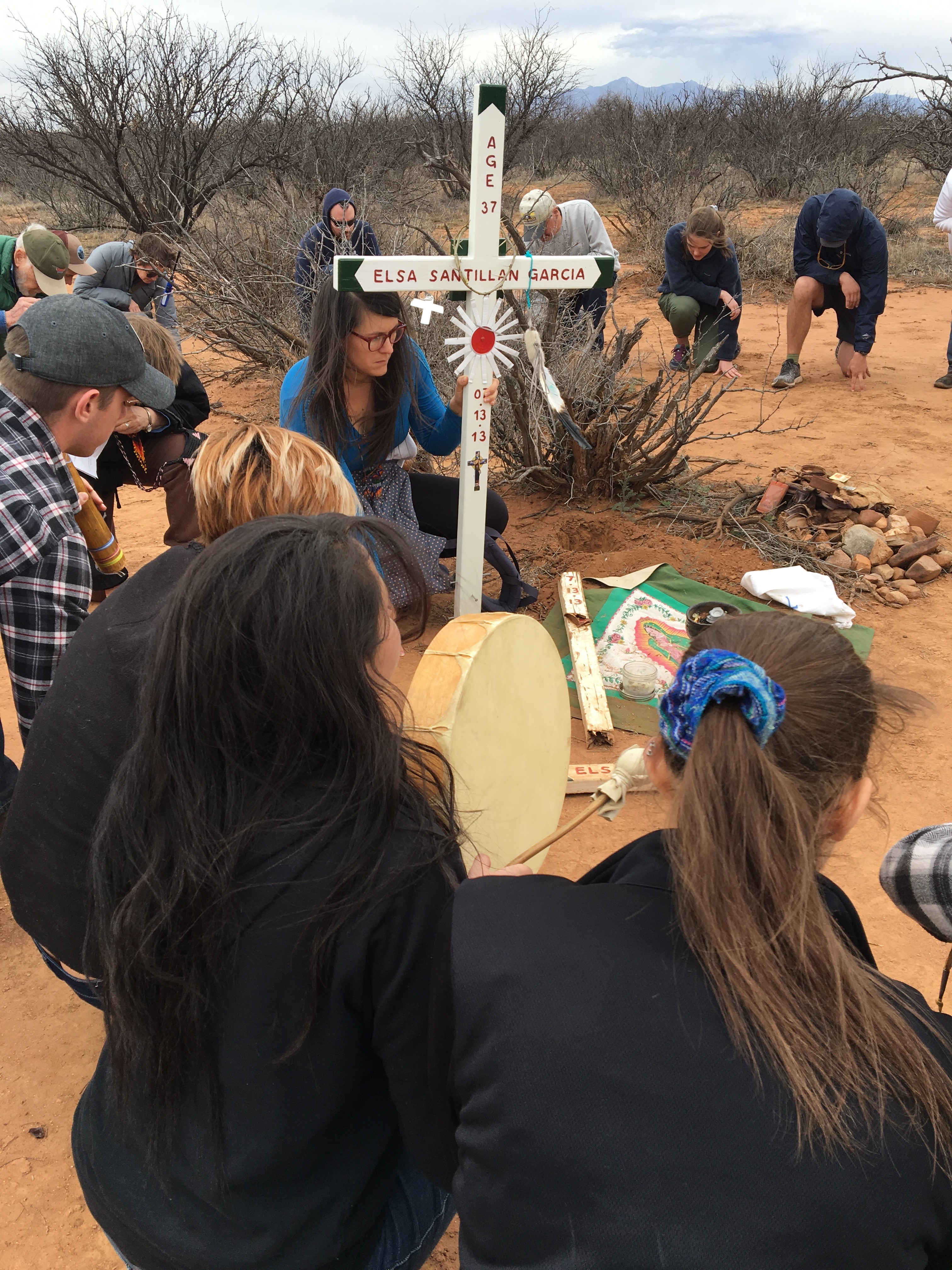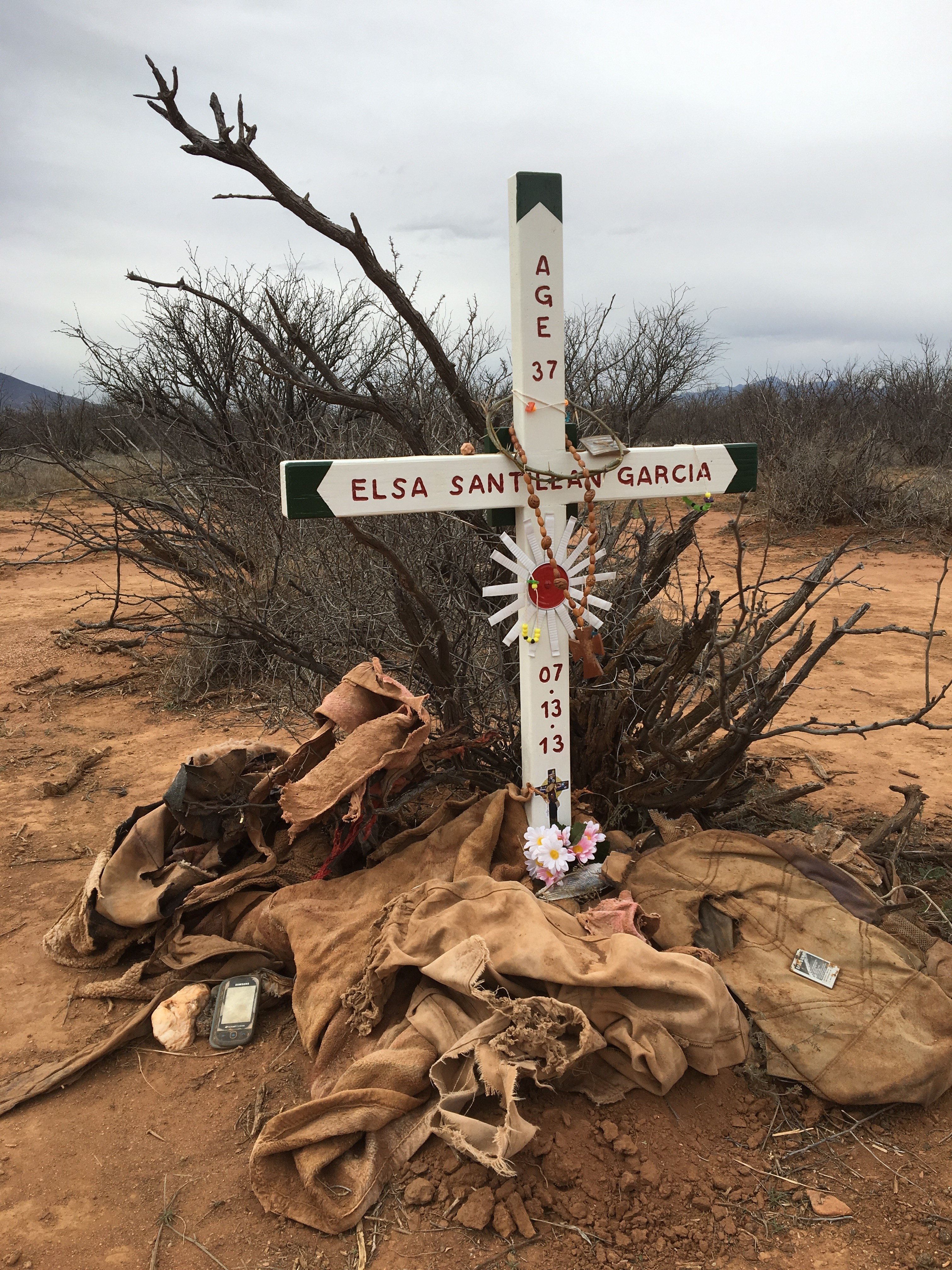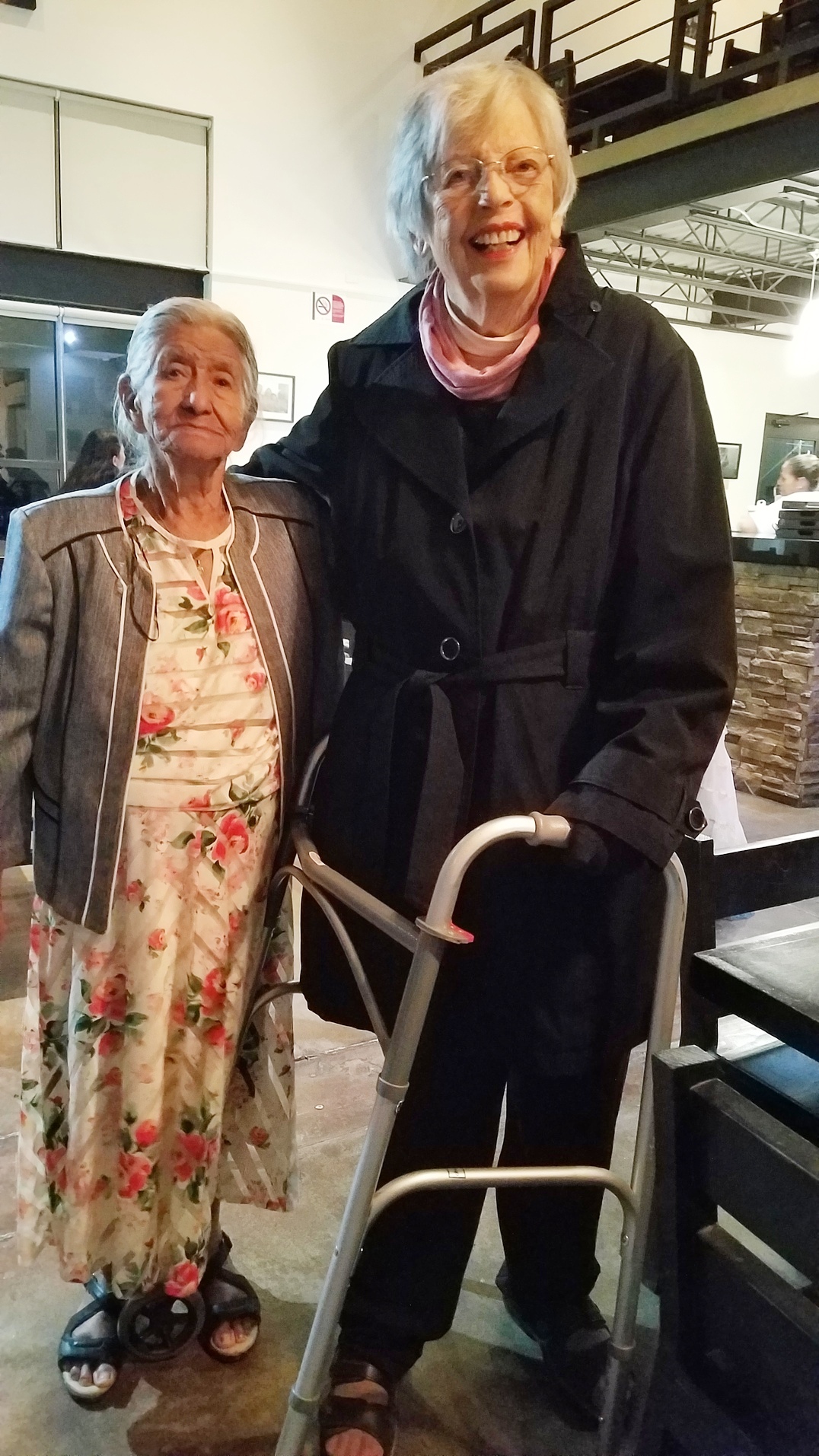A Letter from Mark Adams and Miriam Maldonado Escobar, serving on the Mexican border
September 2019
Write to Mark Adams
Write to Miriam Maldonado Escobar
Individuals: Give to E200302 for Mark Adams and Miriam Maldonado Escobar’s sending and support
Congregations: Give to D506011 for Mark Adams and Miriam Maldonado Escobar’s sending and support
Churches are asked to send donations through your congregation’s normal receiving site (this is usually your presbytery)
Elsa Santillan Garcia
A Mother
A Spouse
A Daughter
A Sister
A Friend
Created in the Divine Image
Beloved by God
PRESENTE!
A Catholic priest, a charismatic lay-person and a Presbyterian pastor met with the patrol officer in charge of the Douglas Border Patrol Station to discuss possible responses to the increased number of people dying while migrating in the Sulphur Springs Valley, the valley in which Douglas, Arizona, and Agua Prieta, Sonora, sit. The “prevention through deterrence” border policy instituted by the Clinton Administration, the economic boom of the 1990s, and the devastation of the Mexican economy turned our sleepy and isolated valley into the primary crossing point for unauthorized migration into the United States. As a nation, we chose deserts and mountains as deadly deterrents to migration. Our policy is intentionally lethal.
We asked Chief Rowdy Adams if he thought the policy that we as a nation were asking him to uphold was a moral one. He responded with a clarity that was jarring yet welcome for its honesty:
“You’ve got man’s law and you’ve got God’s law; and sometimes they come into conflict with one another. For you, there is no higher law than God’s law, but for me there is no higher law than the U.S. Constitution, which I am sworn to uphold.”
Almost 15 years after that interview with Chief Adams, Silvestre walked into the Migrant Resource Center (MRC) in Agua Prieta with two backpacks. One was his. The other was Elsa’s, his wife who had died during the night in the desert about 30 miles west of us. Silvestre was returned by the Border Patrol and found refuge at the MRC while we worked with the Mexican consulate to repatriate Elsa’s remains to their community in Mexico.
Several days after Silvestre had been returned, Laura Stump, the MRC’s U.S. coordinator, shared with him about the Healing Our Borders Prayer Vigil that we hold every Tuesday and asked him if he’d like us to make a cross for Elsa. Laura recounts their encounter in her article, “Two Backpacks”:
“‘Silvestre, we hold this weekly vigil in Douglas,’ I explained to him, gently handing him the cross. ‘We remember and honor all those who’ve died around here in the desert. If it’s alright with you, I would like to make a cross for Elsa.’
“He looked at me, eyes brimming with tears, and watched my hands as I pulled a marker out of the drawer.
“‘Gracias,’ he said emphatically, placing his hand on my hand, looking into my eyes with conviction, ‘gracias.’
“He grasped the marker and carefully etched her name in all capital letters. We added her birthday. Her death day. The words, ‘Mother, Sister, Daughter, Wife, Friend.’ I wrapped her carefully in my arms and carried her out of the center.
“I crossed through the port of entry on foot, handing over my passport without saying a single word or being asked a single question, all the while clutching her to my chest.
“We crossed to the U.S. in less than 30 seconds — a journey she died making.”
Because our border and immigration policies do not value all human life, death has continued. In fact, crossing without documentation today is much more dangerous, expensive and lethal than when we met with Chief Adams. Although the number of people dying in our valley has decreased, it is not a result of our conversations with Chief Adams, but rather the effectiveness of a policy to redirect migration to more isolated and harsh terrains along the border.Following the recent downing of a U.S. drone by Iran, President Trump chose to call off a military strike at the last minute. Reports say that when the president was told that there would be 150 deaths, he decided that the strike would not be “proportional.” And yet we know that each year our policy of “prevention through deterrence” leads to the deaths of hundreds of people desperately fleeing hunger and violence. But rather than declare that our lethal policy is a disproportionate response to the men, women and children seeking refuge in the United States, we as a nation continue to make it increasingly more dangerous and deadly.
Not only is our government making it more deadly, but we have begun to prosecute persons providing humanitarian aid. This is not a new policy. Frontera de Cristo and our partners have asked the question, “Is it legal to be Christian?” for years. We have been surveilled, detained and threatened with having our lives made difficult. We have had a car confiscated. Nonetheless, the policy is a significant escalation.
My colleague Jocabed Gallegos and I were in the federal courthouse the day Dr. Scott Warren, a volunteer with No More Deaths who was charged with three felony counts and the possibility of facing 20 years in prison for providing humanitarian aid, testified. Throughout the trial, I could only think that it was we as a nation who were really on trial.
The jury could not reach a verdict (8 not guilty, 4 guilty), and U.S. prosecutors announced on July 2 that they will re-try him on two felony counts and drop one. When Shirley Jewell, 92-year-old founding member of Frontera de Cristo, heard of the decision, she said, “Well, I guess they’ll just have to put me in jail too.” She went on to share how when faced with human need here in the borderlands, she never asked for anyone’s immigration papers. She just tried to share God’s love the best she could.
Shirley has been embodying FDC’s guiding principles to provide humanitarian assistance in the borderlands throughout her life:
• All persons are created in the Divine Image and deserve to be treated with respect.
• We are called to love our neighbor as ourselves.
• We are called to provide food for the hungry, water for the thirsty and welcome to the stranger.
• We are called to follow the example of the Good Samaritan.
• We do not have the right nor the authority to determine immigration status and will be guided by our biblical principles.
And so we gather every Tuesday to honor the memory of Elsa and the 313 persons whose bodies have been recovered in Cochise County — each with a cross — to remind us that when we did not welcome Elsa, we did not welcome Jesus; to lament our nation’s cruel policy and our complicity in systems of oppression; to pray for our nations for a better way and for an end to death in the desert; and to commit ourselves to work for a more just, more peace-filled and more loving world.
It is a great privilege and responsibility to be PRESENTE on the US/Mexico border. We are grateful for your support that helps make it possible for us to share in the joys and suffering of our sisters and brothers here.
Mark
![]() You may freely reuse and distribute this article in its entirety for non-commercial purposes in any medium. Please include author attribution, photography credits, and a link to the original article. This work is licensed under a Creative Commons Attribution-NonCommercial-NoDeratives 4.0 International License.
You may freely reuse and distribute this article in its entirety for non-commercial purposes in any medium. Please include author attribution, photography credits, and a link to the original article. This work is licensed under a Creative Commons Attribution-NonCommercial-NoDeratives 4.0 International License.
